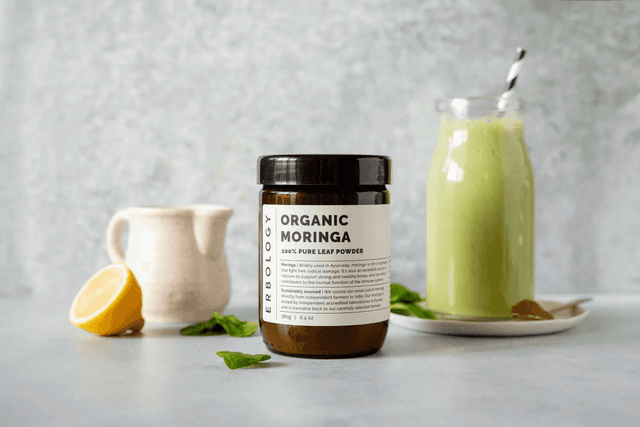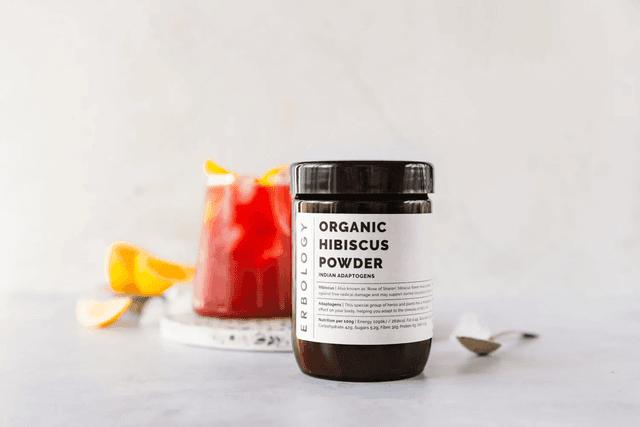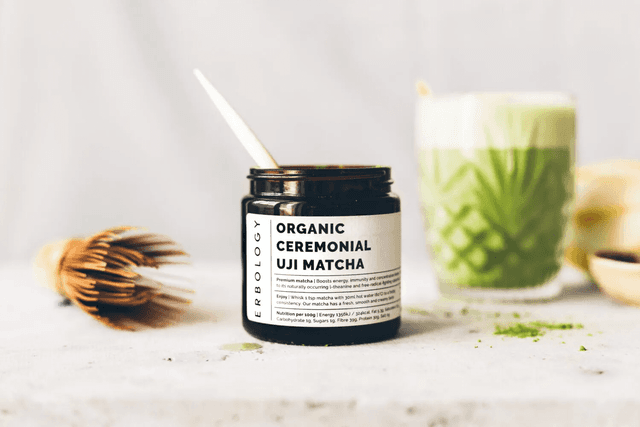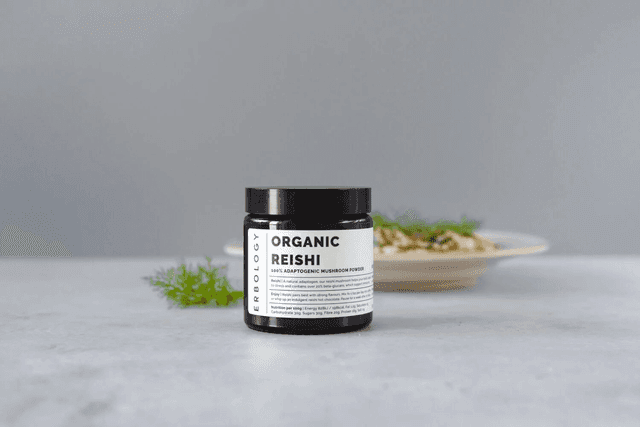19 Jun 2023
Genmaicha: Brown rice tea benefits
What is genmaicha tea?
Genmaicha green tea takes its name from the Japanese words for brown rice (genmai) and tea (cha). It’s technically a blended tea, made by mixing green tea with grains of roasted brown rice. This gives genmaicha a unique flavour, scent, and appearance quite unlike other varieties of green tea. It also offers plenty of potential wellness benefits, which we’ll cover in more detail later.
Interestingly, for a tea that’s now popular worldwide, genmaicha has rather humble origins. Although we don’t know exactly who invented this type of brown rice tea or when, it was likely around the 1900s. Tea was an expensive commodity at the time, so people began adding rice to bulk it out. Genmaicha tea consequently earned the nickname ‘the people’s tea’ because it was more affordable.
Another legend claims genmaicha was created when a servant accidentally dropped some grains of brown rice into his master’s tea. The lord became furious and killed the servant – then tasted the tea and found it to be delicious! However, there is little evidence to suggest this story has any credence.
People traditionally make genmaicha tea using bancha, a cheaper variety of green tea which consists of older tea leaves. Yet today you also find genmaicha tea made with sencha leaves, roasted hojicha tea leaves, and high-end gyokuro leaves. These all come from the same plant, Camellia sinensis. However, cultivators pick them at different times, and grow and process them in different ways.
You can even get matcha-iri genmaicha, which mixes tea leaves, toasted brown rice, and matcha powder. This looks a little different to the other varieties, as the matcha powder coats the rice in vibrant green! Whichever you choose, the most common ratio of leaves to rice in genmaicha tea is 1:1.
What does genmaicha tea taste like?
Genmaicha consists of green tea with brown rice. As such, the flavour varies slightly depending on which type of green tea the producer makes it with. Many people believe the more mature bancha leaves complement the nutty notes of the rice better than younger sencha leaves do. Meanwhile, gyokuro genmaicha tends to be sweeter, whereas hojicha genmaicha is mellow and smoky.
Likewise, the temperature of the water you use and how long you steep the tea for will affect how it tastes. For example, as a general rule, the longer you leave green tea to infuse, the more bitter it becomes.
Having said that, whichever variety you choose, you’ll be able to enjoy the unique characteristics of genmaicha tea. Unlike many other types of green tea, once brewed genmaicha is a light yellow colour. The tea’s distinctive aroma is a beautiful combination of the fresh grassiness of tea leaves and the rich toasty scent of roasted rice.
In terms of flavour, genmaicha tea is warm and nutty, with cereal-like undertones and little bitterness. There’s also a delicate hint of sweetness from the caramelisation of the brown rice. You might find that genmaicha tea reminds you of buttered toast or popcorn. In fact, people sometimes call genmaicha ‘popcorn tea’. This is because some of the rice can pop during the roasted process, making it look a little like popcorn.
All of which makes genmaicha tea a unique and delicious drink!
Does genmaicha tea contain caffeine?
Like all green teas, genmaicha does contain some caffeine. However, brown rice green tea usually has lower levels of caffeine than most other varieties. This is because it’s half green tea and half rice, meaning you use fewer tea leaves per cup. Moreover, rice doesn’t have any caffeine in it at all. As such, genmaicha tea is a popular choice to enjoy in the evening.
It’s not only genmaicha tea’s low caffeine levels that make it a fantastic option when you want to unwind. The drink is also rich in the amino acid L-theanine. Research suggests that L-theanine can have a relaxing effect on the brain, without making you feel drowsy.(1) This is because it increases levels of alpha brain waves, as well as production of serotonin and the neurotransmitter GABA. These may all help to reduce feelings of anxiety. L-theanine might even improve the quality of your sleep – something we could all appreciate!
Note that the amount of caffeine in genmaicha will vary depending on the type of green tea it’s made with. Genmaicha tea made with hojicha or bancha has lower caffeine levels than genmaicha made with gyokuro, matcha or sencha.
Of course, having some caffeine in your tea is not necessarily a bad thing. Multiple studies have found that caffeine can have a positive effect on cognitive functions such as memory, focus, and alertness. What’s interesting is that consuming caffeine and L-theanine together could be especially beneficial in this regard.(2)
Moreover, drinking green tea with brown rice tends to give you a more stable energy boost compared to drinking coffee. So you’re unlikely to get jittery after a cup of genmaicha tea!
Other ways genmaicha tea is good for the brain
In addition to enhancing your cognitive performance, enjoying genmaicha green tea could help to protect your brain from ageing. This is thanks to the assortment of beneficial compounds both green tea and brown rice contain.
For example, green tea is rich in potent polyphenols such as catechins, which studies have found to have neuroprotective effects. Consequently, it could be useful in warding off cognitive decline and reducing the risk of neurodegenerative disorders like dementia.(3) There are several potential reasons for this.
First, catechins are powerful antioxidants, meaning they can protect our cells from the damage caused by free radicals. Experts have linked oxidative stress to neurodegenerative diseases such as Alzheimer’s and Parkinson’s. The brown rice in genmaicha tea also has antioxidant properties, as it’s high in key compounds such as ellagic acid. This further boosts the brain-protecting properties of genmaicha green tea.
Moreover, studies suggest that certain catechins in green tea, like epigallocatechin gallate (EGCG), can activate nerve cells in the brain.(4) This may also help to suppress brain ageing.



